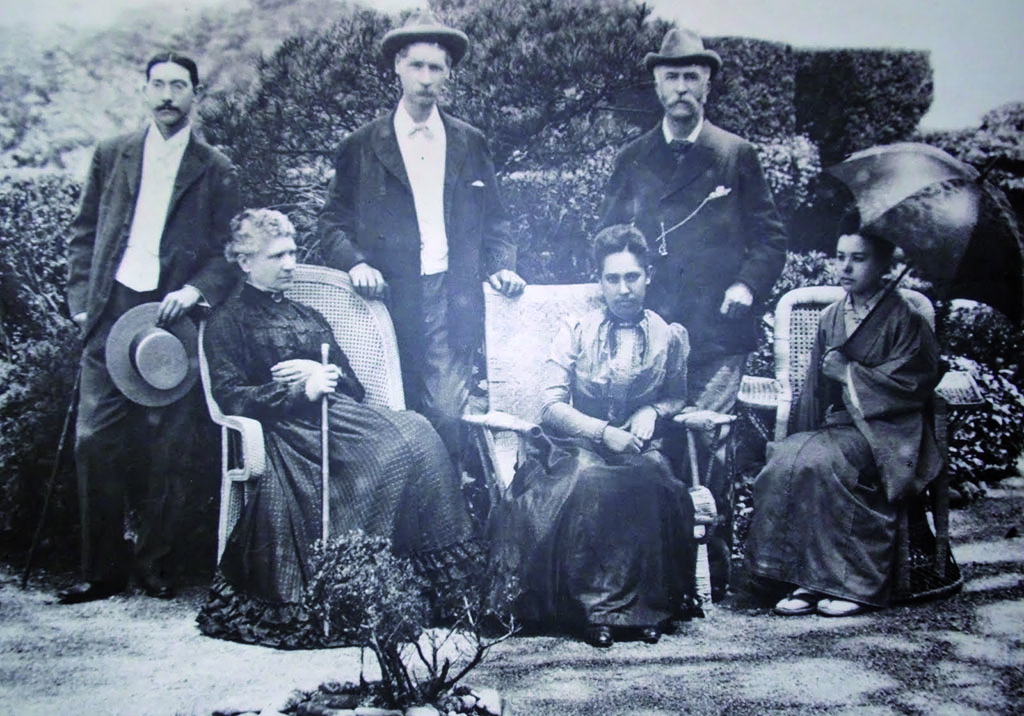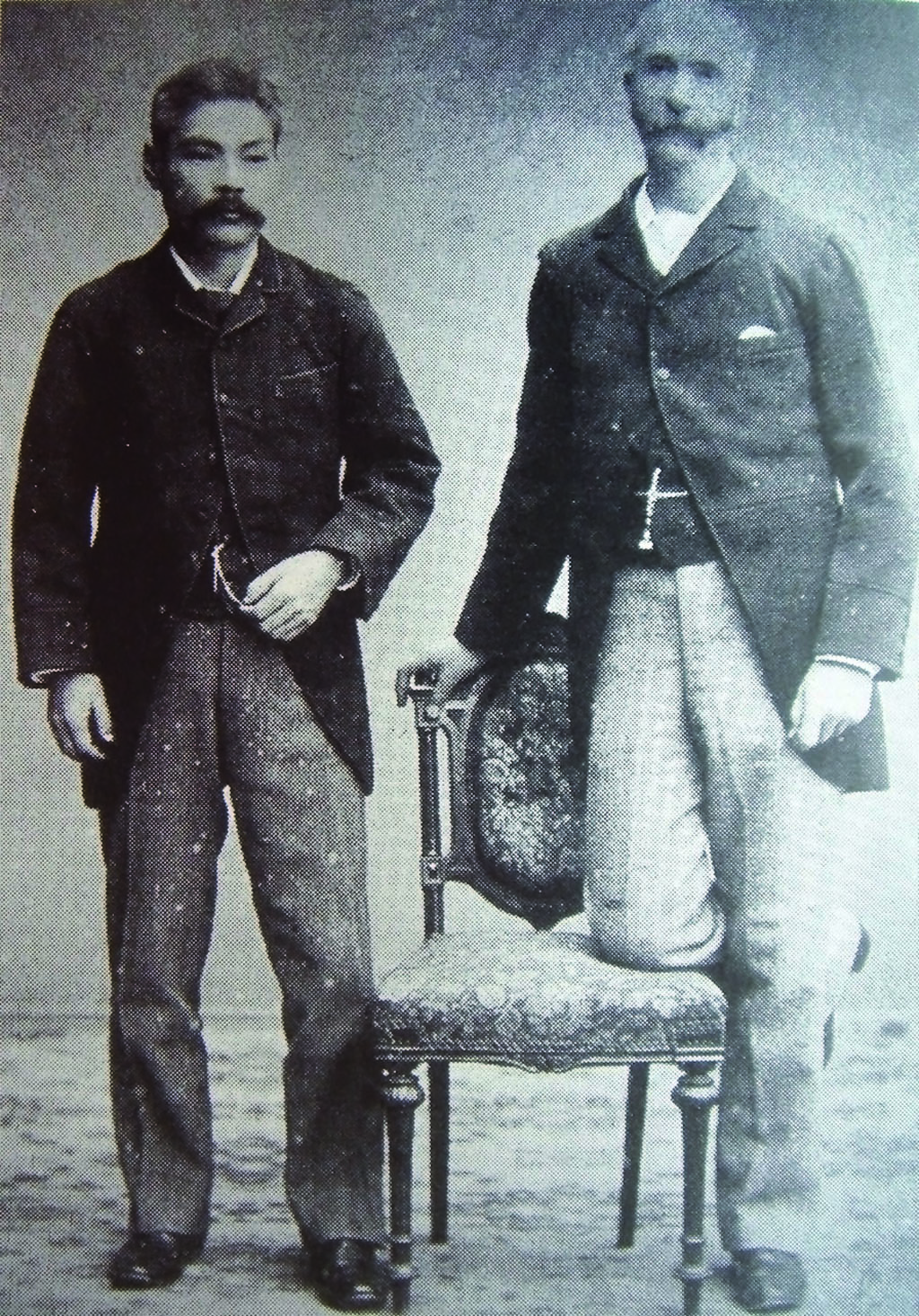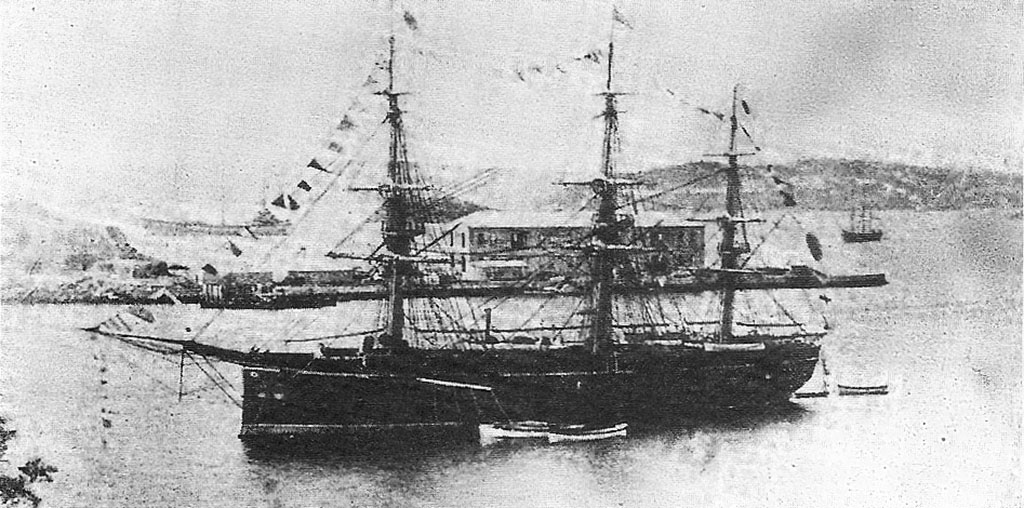
The Scottish Samurai who modernised Japan
A hero, a founding father of modern Japan, and the Scottish Samurai.
These are just a few of the titles bestowed upon the merchant Thomas Blake Glover.
While Glover is held in the highest regard by his adopted home of Japan, few Scots know about the man who helped overthrow the tyrannical reign of the Shogunate in the 19th century, pave the way for international trade, and build one of the strongest economies in the modern world.
The fifth of eight children, Thomas Blake Glover was born in Fraserburgh in 1838 before the family moved to Aberdeen. While his parents could only afford to send the eldest child to university, Glover finished his basic schooling and took a job as a trainee shipping clerk before catching the attention of the Jardine Matheson Far Eastern trading company.
He took up a post in Shanghai for two years and built up a formidable reputation in the process.
After acquiring the skills necessary to become a foreign trader, he went to Japan where his skills in both trading and diplomacy were truly tested.
At a time when Japan was viewed as a closed society, unwilling to engage with foreigners in business, Glover managed to establish a presence threw his shrewd business acumen and knack for identifying industrial opportunities in advance.

The Glover family in the early 1900s
The country’s own citizens were not permitted to travel outside Japan on pain of death under Shogunate control but Glover, utilising his trading networks, managed to organise educational trips to Britain and Europe for elite samurai youths, which included visits to Glasgow, a bustling hub of heavy engineering.
In 1861 at the age of 23, Glover set up his own company – Glover Trading Company (Guraba-Shokai). Glover’s success in undermining and aiding the toppling of the dictatorial Tokugawa Shogun, was primarily due to his weapon and ship supply trade.
This meant Japan’s Satsuma and Choshu clans were able to arm themselves against the regime and eventually triggered the Meiji Revolution, restoring imperial rule and returning the emperor to the throne.
Meanwhile in 1865, Glover introduced the first steam locomotive ever seen in Japan – the Iron Duke – and by the end of the 1860s Glover had opened the first coal mine in the country to adopt western mining methods and had also built the country’s first dry dock.
When he fell into bankruptcy in 1870, Glover sold his stake in the coal mine but retained his post as mine manager before Mitsibushi bought the company in 1881.

Glover with Iwasaki Yanosuke, one of Mitsubishi’s founders
The Mitsubushi Corporation remains Japan’s largest trading company. Glover developed a friendship with its founder, Yataro Iwasaki, and supplied ships and armaments for the company’s second president Yanosuke, who also represented the Tosa clan in Nagasaki. Glover became an invaluable part of the business, acting as an advisor for 40 years.
Glover gave several nods to his roots by commissioning Japan’s first three warships from Aberdeen along with enlisting a Scottish engineer to build the nation’s first lighthouse. He also laid Japan’s first telephone line between the Nagasaki foreign settlement and Takashima.
All this must have been thirsty work as Glover took an interest in the beer industry and played a crucial role in the founding of the Kirin Brewery Company, originally The Japan Brewery Co.
For Glover’s many contributions to Japan’s technological and military growth, he was awarded the Order of the Rising Sun, the country’s highest honour, by the Emperor Meiji in 1908, the first foreigner to receive such an award.
While Glover died in 1911, he had helped set the wheels in motion for a powerful new Japan. However, despite their valuable alliance during the First World War, Britain and Japan’s relationship was shattered by the events of World War Two, particularly so by Japan’s treatment of Allied prisoners of war.

Japan’s first warship, built in Aberdeen and commissioned by Glover
It seems reasonable to conclude that the frequent absence of Glover’s name among Scotland’s highest achievers was a result of these events. Japan owes much of its economic and military growth to a Scotsman – during the post-war era, that must have been a bitter pill for his native country to swallow.
In recent years Glover’s name has come out of the shadows and his shrewd business sense and a penchant for the unorthodox have been celebrated. While Glover’s home in Japan – the oldest western-style building in the country – attracts two million visitors a year, his home in Aberdeen was also a tourist attraction before closing in 2012.
Proposals have been put forward to turn the building into housing for Japanese students on an international exchange program. As a cheers to Glover’s ingenuity and connection to Japan, Adelphi Distillery has also released a collection of Scotch-Japanese blended whisky with the 4th edition being released last year.
At last, it appears that the wounds of the past are healing, and the extraordinary achievements of a boy from the north east have finally been recognised by his homeland.
TAGS

